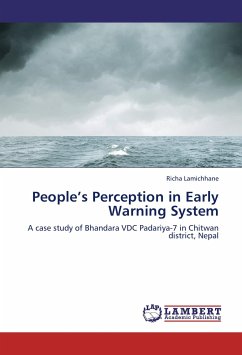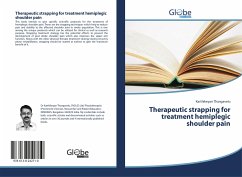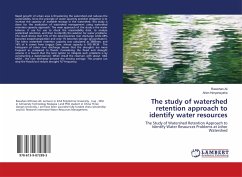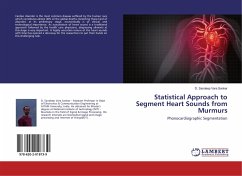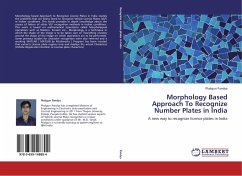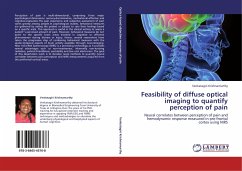
Feasibility of diffuse optical imaging to quantify perception of pain
Neural correlates between perception of pain and hemodynamic response measured in pre-frontal cortex using NIRS
Versandkostenfrei!
Versandfertig in 6-10 Tagen
52,99 €
inkl. MwSt.

PAYBACK Punkte
26 °P sammeln!
Perception of pain is multi-dimensional, comprising three major psychological dimensions: sensory-discriminative, motivational-affective and cognitive-evaluative.The pain experience and subjective assessment of pain varies greatly among people.In psychological studies, behavioral measures are gathered by asking the patient or subject to rate their feelings based on a specific scale. This approach is useful in the clinical setting to assess a patient s perceived amount of pain. However, behavioral measures do not point to the specific brain areas involved in cognitive or affective phenomenon du...
Perception of pain is multi-dimensional, comprising three major psychological dimensions: sensory-discriminative, motivational-affective and cognitive-evaluative.The pain experience and subjective assessment of pain varies greatly among people.In psychological studies, behavioral measures are gathered by asking the patient or subject to rate their feelings based on a specific scale. This approach is useful in the clinical setting to assess a patient s perceived amount of pain. However, behavioral measures do not point to the specific brain areas involved in cognitive or affective phenomenon during distress or injury. Hence, several researchers have taken the progressive step of combining behavioral measures with the spatio-temporal aspects of brain activity available through neuroimaging. Near Infra-Red Spectroscopy (NIRS) is a promising technology as it provides several advantages such as non-invasiveness, inherently non-ionizing radiation, patient-friendliness, portability and low cost electronics. The goal of this dissertation work is to develop novel methods to quantify neural correlates between pain perception and NIRS measurements acquired from the prefrontal cortical areas.




